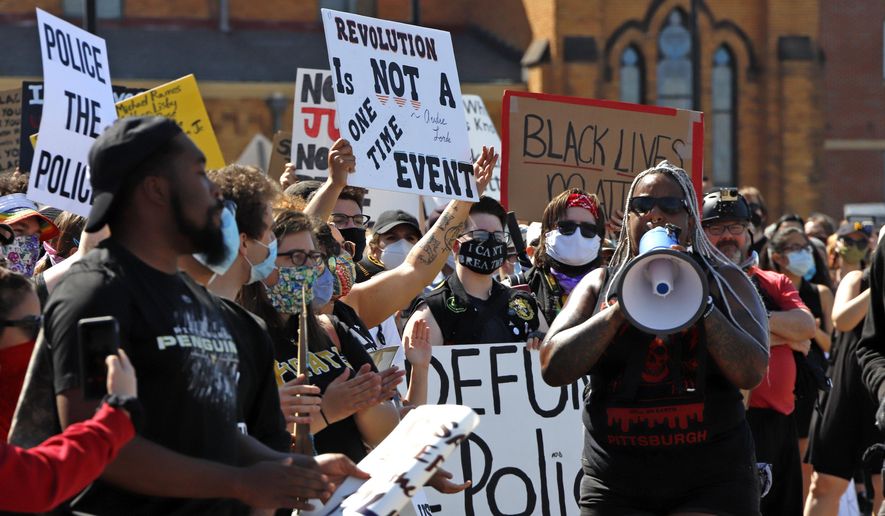President Biden’s decision to use executive action to deliver a racial justice overhaul of the country’s policing policies is drawing protests and lawsuit threats from law enforcement officials.
Brandon Judd, president of the National Border Patrol Council, vowed legal action if Mr. Biden unilaterally strips police of qualified immunity, a legal standard that shields public officials from lawsuits for their actions in the line of duty.
“We will have standing and therefore we will immediately file suit because … we believe that it is unconstitutional,” Mr. Judd told The Washington Times.
Law enforcement leaders also said they have been shut out of the White House’s crafting of the executive actions.
Weakening qualified immunity for police was a key component of the police overhaul bill that died in Congress.
Mr. Biden pivoted to executive action after Senate negotiations collapsed over the George Floyd Justice in Policing Act, which nixed a major campaign promise Mr. Biden and Democrats made to Black voters.
The White House is still hammering out the details, according to multiple reports, but Mr. Biden is expected to issue the orders as soon as February to coincide with Black History Month.
“I think there’s a recognition and a commitment by the president to deliver on what he promised,” White House press secretary Jen Psaki said last week about the anticipated actions.
A chief sticking point in the failed bill was rolling back qualified immunity for police officers. Democrats said it was a crucial accountability measure, but Republicans opposed it, saying it would hamstring police and invite lawsuits for every arrest.
The Biden administration has already used rule-making to enact some measures that were in the policing legislation. The Justice Department imposed restrictions on “chokeholds” and “no-knock” warrants last year.
Bracing for the pending White House action, House Republicans on Wednesday held a roundtable discussion about it with law enforcement leaders.
Fayette County, Ohio, Sheriff Vernon Stanforth, president of the National Sheriffs Association, called the pending executive action “alarming.”
“Law enforcement, at least from my involvement as the national president, has not been at the table with the White House and looking at any of these issues,” he said. “They’re just gonna issue this executive order, we think, anytime now and It’s going to a tremendous negative impact on our recruitment and our retention on maintaining our drug task force if they’re affiliated with federal entities.”
He added: “Our law enforcement need to know that they can go act in the line of duty without being put up for lawsuits and being challenged and being gone after by the American people without regard to the circumstances that they face on the front lines and so we’ve gotta address that.”
The White House did not respond to a request for comment.
Rep. Chip Roy, Texas Republican, vowed that Congress would not allow Mr. Biden to usurp its authority, though Republicans will have little opportunity to fight back in the Democratic-run House.
“We cannot allow the president of the United States to be running this place, tyrannically through fiat as a dictator. This is Article One, this is Congress, and we have to reassert ourselves and take control of those things back,” he said. “That takes every tool in the book. That includes funding. We shouldn’t be funding any of this while it’s being challenged in the courts, which we know will be and should be challenged in the courts, but we’ve gotta use every tool in our toolbox as well, which includes not funding.”
Most Democrats in Congress are expected to unilateral action by Mr. Biden on policing.
House Majority Leader Steny H. Hoyer, Maryland Democrat, said in an interview that he did not expect the president’s racial justice efforts to hamper crime-fighting.
“The president, throughout his lifetime, has been a very strong supporter of law enforcement, very strong enforcement of fighting crime. I think he continues in that mode. We also want to make sure that it’s done correctly,” he said. “We all need to make it very clear that we have to make sure that we have law and order within our communities, but that we have law and order with a sensitivity following the law and the Constitution.”
• Kerry Picket can be reached at kpicket@washingtontimes.com.




Please read our comment policy before commenting.